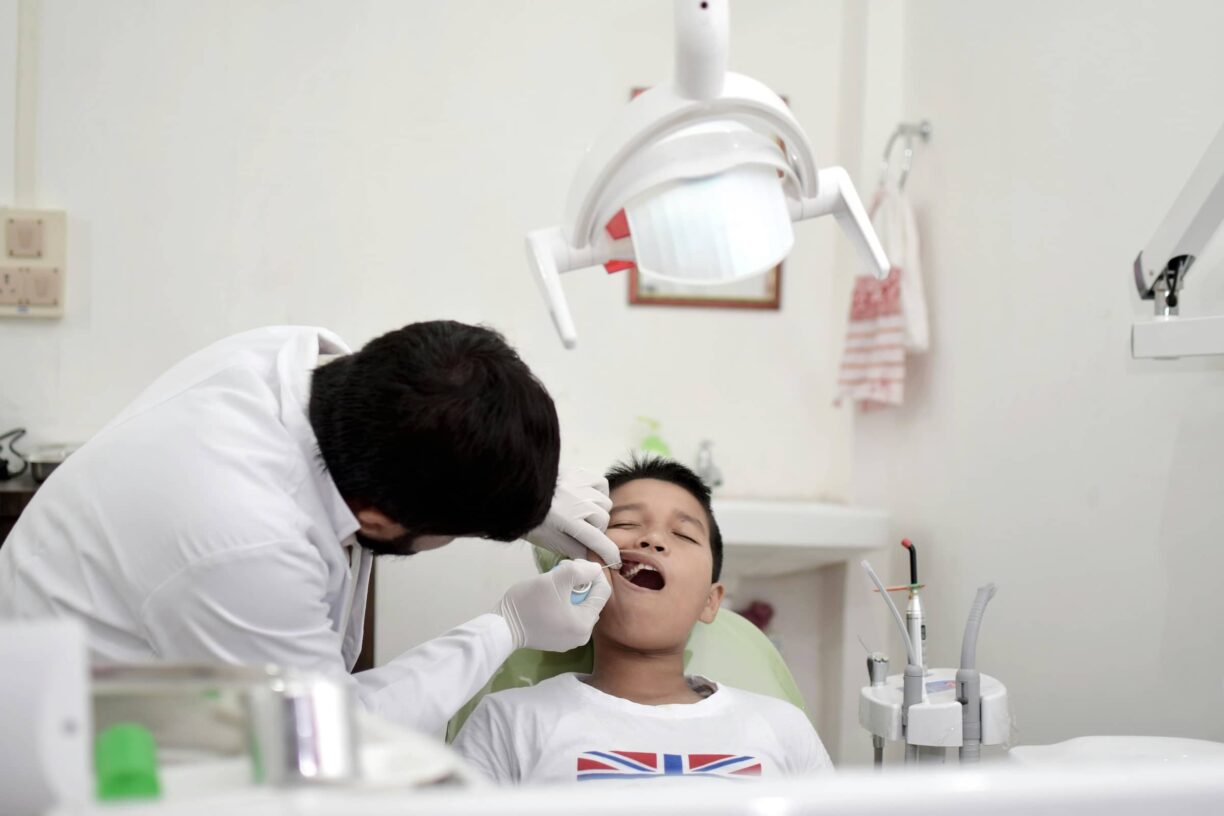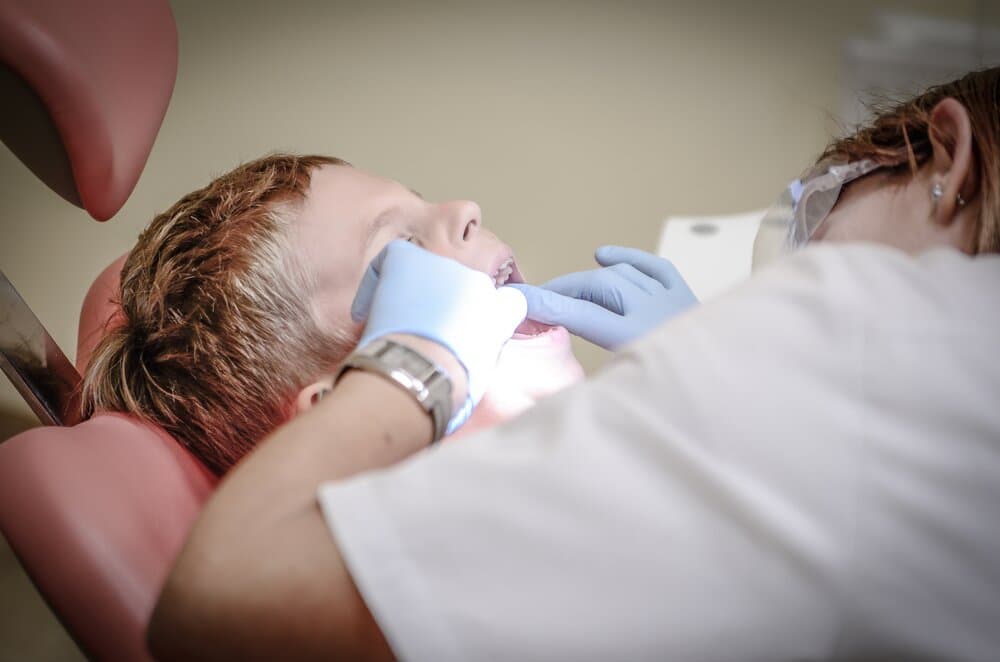No parent wants to have their child seated tensely in a dental chair clutching your hand tightly and eyes wide with anxiety.
To adults, the word extraction sounds clinical; to a youngster, it can sound horrific. Many children find great worry, fear, and even panic when they see a dentist removing a tooth. To be honest, many parents feel the same way deep down.
How then can you guide your child through this experience with as low emotional stress as possible? Here I talk about how you can help your child overcome their anxiety about a tooth extraction and turn it into a controllable, even powerful event rather than about what a tooth extraction is.
Using child psychology, professional knowledge, and real-life experience, we will walk through every mental, emotional, and physical aspect of helping your child negotiate a tooth extraction without anxiety.
Recognising Children’s Root Source of Dental Anxiety

Children get dental anxiety not uncommonly. Helping individuals overcome it starts, then, with an awareness of why it occurs.
Among common triggers are:
- Pain anxiety: Youngsters sometimes link dental work with pain.
- Many people have no idea what a tooth extraction entails.
- Past unfavourable events: Trauma from a past unpleasant dental appointment can persist.
- Children may take up on the personal fears of their parents.
These worries are not illogical. Children still have learning about the world, hence anything involving white jackets, sharp equipment, and unfamiliar surroundings might be frightening.
Moreover, untreated anxiety can develop and result in lifetime dental avoidance, which later on creates more general health issues.
Mental Preparation Of Your Child For A Tooth Extraction
Before the visit, let’s discuss ways your child might develop emotional resilience.
Open Communication: Still Keep It Age-Appropriate
Though not a medical lecture, your youngster needs honesty. Describe the procedure in simple terms.
Say, “The dentist will help your tooth come out quickly so your mouth can stay healthy,” instead of “They’re going to pull your tooth out.”
Show what will happen using anecdotes, role-playing, or even their beloved stuffed animal.
Keep Calm; Your Energy Counts
Youngsters reflect the emotional tenor of the people around them. They will feel it too if you are nervous.
Check in with yourself before their appointment. Even if you’re faking it a little, practise deep breathing and talk about the visit in a confident, pleasant voice. Your youngster looks to you for cues.
See The Dentist Early Next Month
If the extraction isn’t an emergency, plan a “happy visit” prior to the surgery. Let your youngster visit the office, see the dentist, and sit in the chair free from any frightening events.
This desensitises them and fosters familiarity, which helps the big day to seem a lot less frightening.
The day the extraction takes place: Maintaining composure in the chair
It’s a game once you arrive at the dentist’s office. Here is the junction of preparedness, empathy, and trust.
Use comfort items.
Let your youngster bring a comfort item—a blanket, beloved stuffed toy, or even a fidget toy. Emotionally, something known can ground them.
Group Practice Breathing Strategies
Try this straightforward technique:
“Let’s breathe in slowly for four counts, then blow out as if you were cooling soup.”
This not only slows the pulse rate but also provides your child with something else to concentrate on than anxiety.
Remain Present, but back off as necessary.
You really are strong. Your child may feel more secure simply being in the room. Still, believe the dental team as well.
Avoid taking it personally if they advise you to leave to assist your youngster relax. Sometimes children act more fearlessly when they are not clinging to a parent.
Aftercare Empathetically: Transforming Recovery Into Comfort
Extraction of teeth is an experience rather than a one-time event; therefore, the way your child remembers it will rely on the course of the recovery.
Test Their Emotions
Let your youngster share how it felt; listen without trying to “fix.”
Say something like, “I know it was scary, and you were so brave.”
“Your mouth is healing; it’s good to feel a little weird or sore.”
Resilience is developed via acknowledgement.
Transform Recurrence Into a Cosy Experience
Arrange a tiny recuperation station at home with lots of cuddles, soft snacks like yoghurt and applesauce, and their favourite movies. Linking the aftermath with warmth and affection helps change the story.
Real-Life Commentary: The Story of a Parent
My daughter was afraid when her first baby tooth was extracted. Until we entered Nuffield Dental, she froze, and I had no idea how strongly her anxiety ran. She murmured, “Please don’t make me go in,” clutching my leg.
One inhaled here. The dentist was amazing; she let her “help,” by holding the mirror, space, and informed her exactly what would happen. After the brief tug, she looked startled and asked, “That’s it?” after tightly squeezing her beloved rabbit.
She showed everyone her gap on the way home and asked for ice cream. Once a panic episode, what started out as pride evolved. She was brave; today she is not terrified of the dentist.
Final Thoughts: Give dental health top attention in mental health.
Helping children through a tooth extraction is not about fooling them into silence or paying off obedience. It’s about honouring their worries, gently getting ready for them, and lovingly and with trust guiding them through the process. Selecting a dentist for children—someone with training in paediatric care and communication—can significantly help to create a peaceful and understanding environment.
That lesson goes much beyond the dentist’s chair when a child discovers they can handle anxiety and come out okay. It develops emotional strength they will carry with them always.
Commonly asked questions ( FAQ)
A child’s healing from a tooth extraction takes what length of time?
Most children heal fast—within one to two days for mild discomfort and a week for the region to completely seal. Soft foods and straw avoidance help things move more quickly.
Is a child’s dental anxiety going to disappear with time?
Indeed, many children overcome dental phobia by means of encouraging events and trust-building. But the long-term picture is better the earlier you take care of it.
Can a child be sedated for an extraction without risk?
Under some circumstances, dentists might advise sedation. Specifically prepared for this, pediatric dentists follow strict safety procedures. Talk always about all possibilities and hazards with the supplier.
Should my child panic or cry while at the dentist?
Calm yourself. Test their anxiety without feeding it. Let the dental team lead the process; they are adept in sedating young patients. If anxiety is too great, sometimes splitting the process into two trips will assist.





